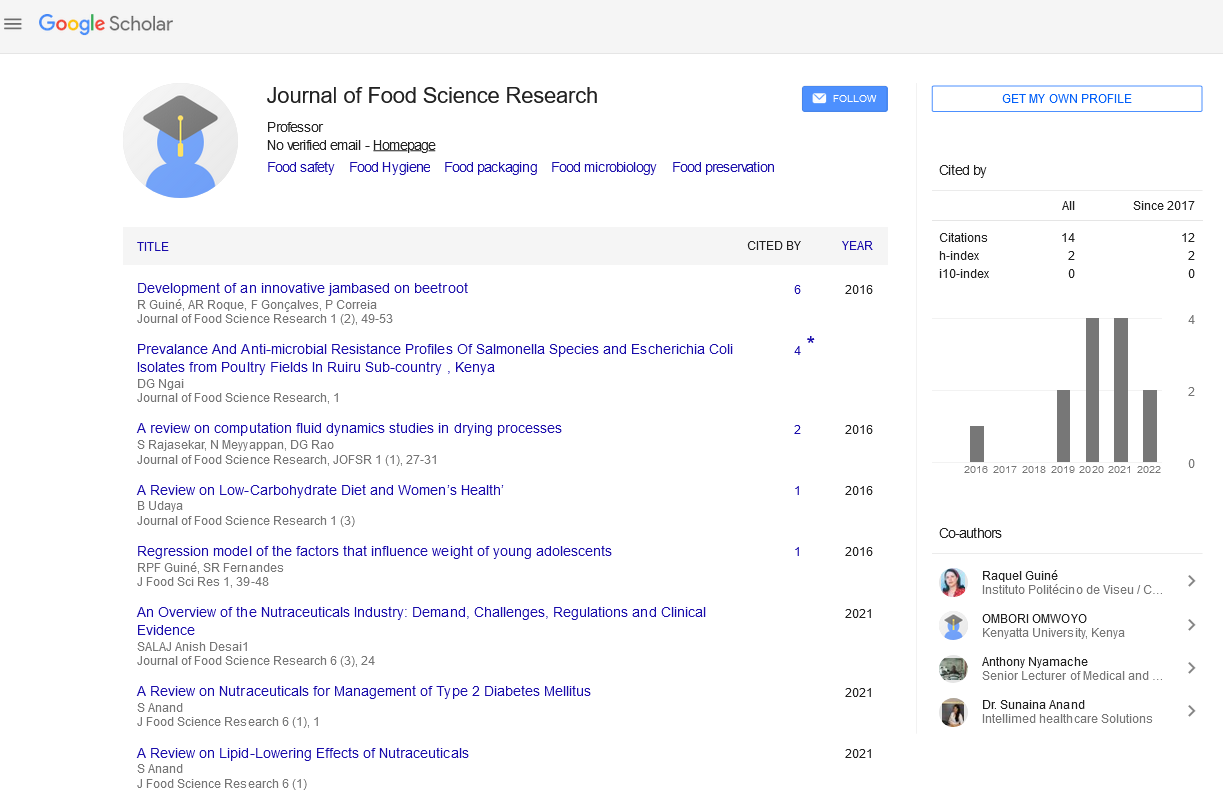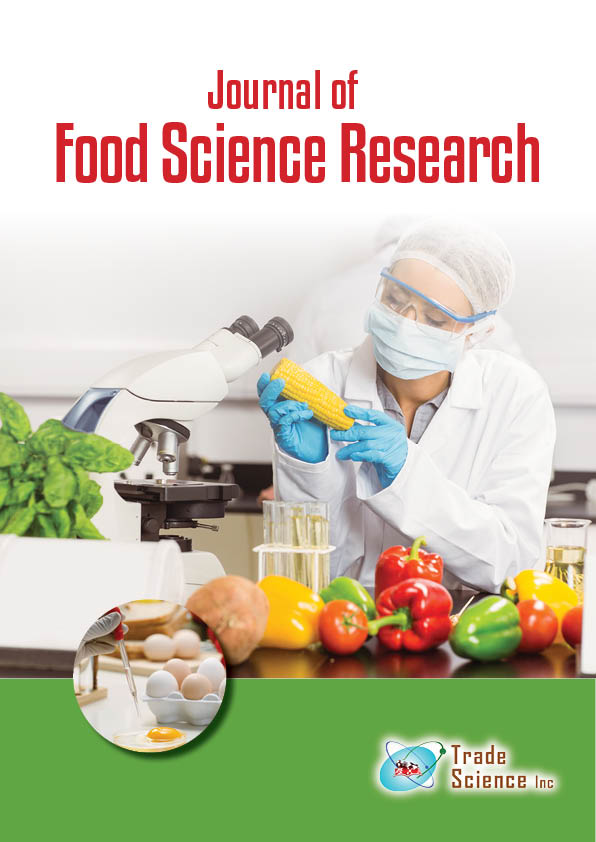Short communication
, Volume: 6( 5)Application of Extrusion-Cooking Technology For The Production of Enriched Gluten-Free Rice-Based Pasta: Processing And Quality Evaluation
Author Name: Abdallah Bouasla
Université Frères Mentouri Constantine, Algeria
Abstract
Gluten-free products are usually made of rice which has weak nutritional quality. Pasta is considered as a good product for the addition of highly nutritious raw materials. Pseudo-cereals and legumes are interesting raw materials which could be incorporated in gluten-free food to enhance their nutritional quality. The aim of this study was to apply extrusion-cooking technology to produce gluten-free rice-based pasta enriched with buckwheat or lentil flours and to evaluate selected quality characteristics of gluten-free pasta. Methodology & Theoretical Orientation: Gluten-free spaghetti was prepared with rice-buckwheat flour blend (50-50 w/w) and ricelentil flour blend (70-30 w/w) with 30% of moisture content using a single-screw extrusion-cooker with screw speed of 80 rpm and temperature of 120°C for rice-buckwheat pasta and 100°C for rice-lentil pasta. Control pasta was prepared with rice flour. Chemical composition, expansion ratio, optimal cooking time, water absorption capacity, cooking loss, color, texture properties (hardness, firmness and stickiness), and sensory attributes (appearance, color, flavor, taste, and stickiness) were assessed. Microstructure of the surface and cross-section of the pasta were examined with scanning electron microscope. Findings: Enriched pasta had higher protein, ash and dietary fiber contents than rice pasta. Moreover, the addition of buckwheat or lentil flours decreased the expansion ratio, the lightness, and the hardness, and increased the yellowness, the firmness, and the stickiness without affecting the optimal cooking time. Obtained results showed also that both rice pasta and enriched pasta had low cooking loss and acceptable scores for all sensory attributes. Concerning microstructure, all pasta products presented a smooth surface with a compact and homogeneous inside structure. Conclusion & Significance: Both pasta enriched with buckwheat and lentil flours had good quality and they would constitute a good alternative for celiac people
Introduction: Gluten-free products are usually made of rice which has weak nutritional quality. Pasta is considered as a good product for the addition of highly nutritious raw materials. Pseudo-cereals and legumes are interesting raw materials which could be incorporated in gluten-free food to enhance their nutritional quality. The aim of this study was to apply extrusion-cooking technology to produce gluten-free rice-based pasta enriched with buckwheat or lentil flours and to evaluate selected quality characteristics of gluten-free pasta. Methodology & Theoretical Orientation: Gluten-free spaghetti was prepared with rice-buckwheat flour blend (50-50 w/w) and ricelentil flour blend (70-30 w/w) with 30% of moisture content using a single-screw extrusion-cooker with screw speed of 80 rpm and temperature of 120°C for rice-buckwheat pasta and 100°C for rice-lentil pasta. Control pasta was prepared with rice flour. Chemical composition, expansion ratio, optimal cooking time, water absorption capacity, cooking loss, color, texture properties (hardness, firmness and stickiness), and sensory attributes (appearance, color, flavor, taste, and stickiness) were assessed. Microstructure of the surface and cross-section of the pasta were examined with scanning electron microscope. Findings: Enriched pasta had higher protein, ash and dietary fiber contents than rice pasta. Moreover, the addition of buckwheat or lentil flours decreased the expansion ratio, the lightness, and the hardness, and increased the yellowness, the firmness, and the stickiness without affecting the optimal cooking time. Obtained results showed also that both rice pasta and enriched pasta had low cooking loss and acceptable scores for all sensory attributes. Concerning microstructure, all pasta products presented a smooth surface with a compact and homogeneous inside structure. Conclusion & Significance: Both pasta enriched with buckwheat and lentil flours had good quality and they would constitute a good alternative for celiac people.

